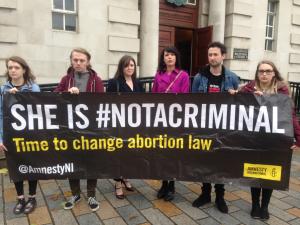
By Rebecca Black and Michael McHugh
Belfast High Court has been urged to find that Northern Ireland's abortion laws are incompatible with human rights legislation.
The plea was made in the opening stages of a fresh legal challenge to the region's restrictive abortion laws.
Sarah Ewart's case comes after the Supreme Court ruled last year that abortion laws in the region were in breach of human rights legislation.
Ms Ewart, from Belfast, has pursued a long legal battle over her treatment and is back in court in the city.
She travelled to England for a termination after being told her pregnancy had a fatal foetal diagnosis.
Her legal challenge is being heard by Mrs Justice Siobhan Keegan in a hearing expected to last three days.
There are two respondents in the case: Northern Ireland's Department of Justice and Department of Health.
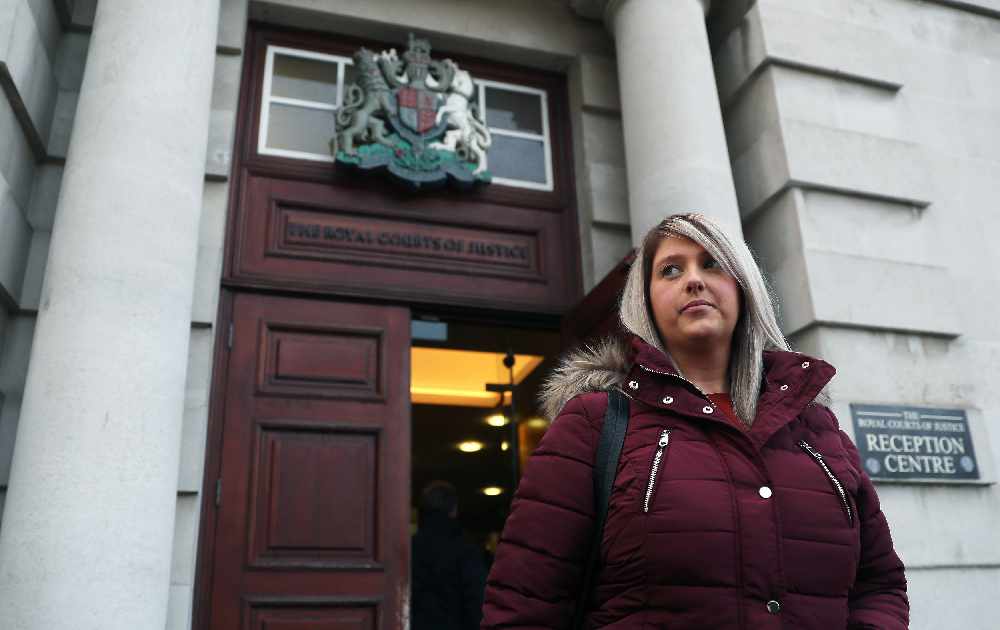
IMAGE: Sarah Ewart
Northern Ireland's Attorney General John Larkin is representing himself in the proceedings.
Barrister Adam Straw, acting for Ms Ewart, started setting out the arguments in her case on Wednesday morning.
"I respectfully invite this court to follow the lead of the Supreme Court," he said.
Both pro-choice and anti-abortion campaigners gathered outside the High Court on Wednesday morning ahead of the hearing.
Ms Ewart described the experience of returning to court as "really nerve-wracking" but added: "I am really hopeful that the High Court listens to what the Supreme Court has previously said - that women here who find themselves in the circumstances that I found myself in will get the help and the treatment that we need in our hospitals with our own medical teams.
"This is a medical situation that I found myself in; five years down the line I am reliving the stress and the trauma all over again.
"I should not have to be here, sharing my story again, so I am hoping this time will be the final time through the courts, that we will get the help that we need."
Ms Ewart is being supported by Amnesty International, one of five intervenors in the case.
The others are the Human Rights Commission, Humanists UK, Centre for Reproductive Rights and Precious Life.
In a judgment last June, five of the seven Supreme Court judges ruled that Northern Ireland's abortion law breached the UK's human rights obligations.
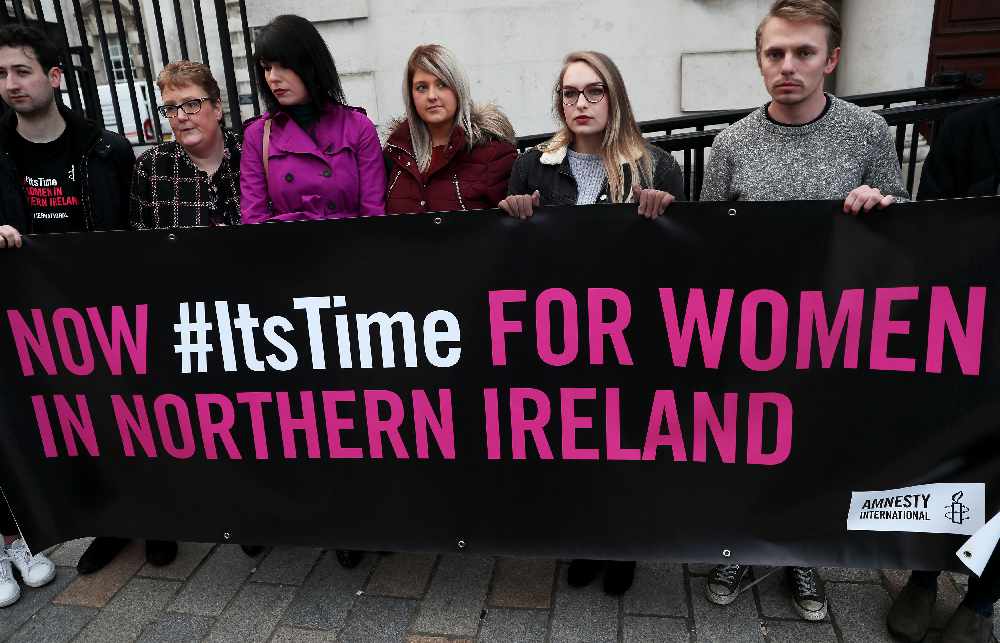
However, they concluded that the Northern Ireland Human Rights Commission - which brought the case - did not have the power to bring the proceedings as it was not itself a "victim" of any unlawful act.
A fatal foetal abnormality (FFA) diagnosis means doctors believe an unborn child will die either in the womb or shortly after birth.
It is not grounds for a legal abortion in Northern Ireland. The procedure is allowed if the mother's life is in danger.
Northern Ireland's chief medical officer recommended change for such cases in 2016 but the Stormont Assembly collapsed soon afterwards and the matter was not addressed.
Both sides of the argument held placards outside Belfast High Court on Wednesday.
Some supporting Ms Ewart said "Now it is time for Women in Northern Ireland" - a reference to recent reforms in the Republic of Ireland.
Those who favoured the status quo carried signs which said "Life is a right, not a privilege".
Others said judges and politicians had a responsibility to protect that right.
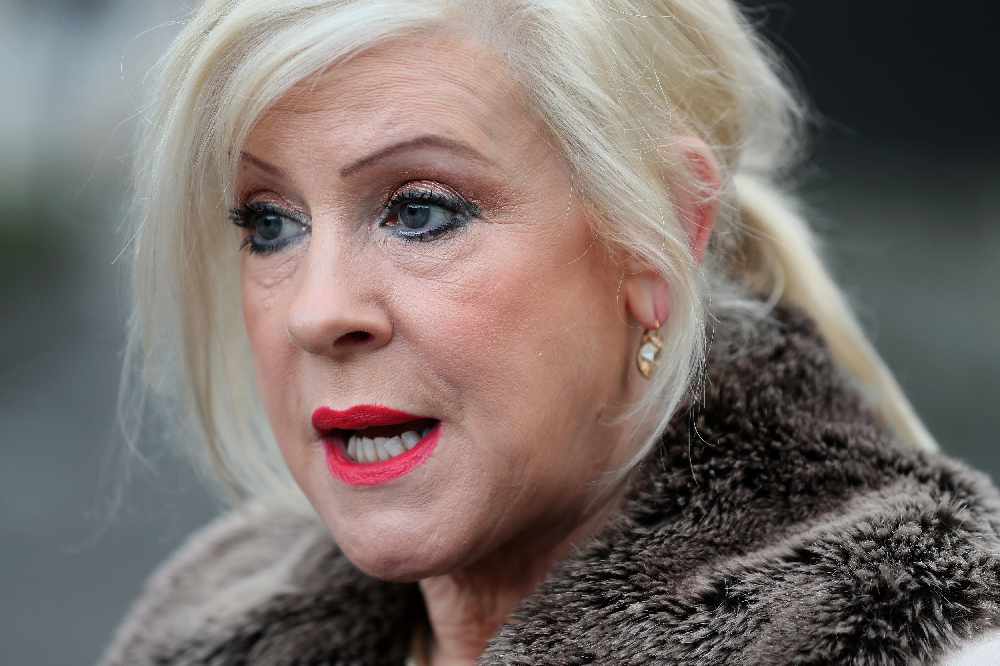
IMAGE: Bernie Smyth from anti-abortion group Precious Life
Bernie Smyth from anti-abortion group Precious Life said: "We are saying this is barbaric, it is wrong and it should never be introduced here in Northern Ireland."
She said the Supreme Court's intervention in Ms Ewart's case was not binding.
"That was the opinion of the judges at that time, we could have another set of judges who would have a different opinion.
"We have also heard from our own court in 2017 who clearly stated that this issue is for the democratic process, it is not the right of the court.
"We would be very hopeful that this court would see that the rights of every unborn child, whether that child has a life-limiting disability, has a right to be protected in law and should not be discriminated against through abortion."
Amnesty campaigns manager Grainne Teggart said Northern Ireland Secretary Karen Bradley should have moved to change the law before now.
"It is a damning indictment of the British Government that women like Sarah are being forced through the courts to have their rights realised.
"We call on the UK Government to bring an end to the suffering of women in Northern Ireland and change the law."


 Education Authority boss hits out at criticisms of public services
Education Authority boss hits out at criticisms of public services
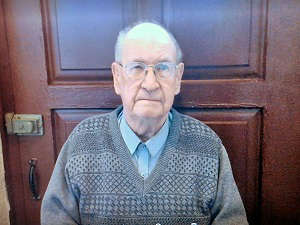 Man in 90s dies following Co Down road crash
Man in 90s dies following Co Down road crash
 Police to increase patrols after second incident of shots being fired in Belfast
Police to increase patrols after second incident of shots being fired in Belfast
 Woman charged over theft of campaigner’s car ‘must stay out of Belfast’
Woman charged over theft of campaigner’s car ‘must stay out of Belfast’
 Bluetongue restrictions in Northern Ireland will be relaxed from Friday
Bluetongue restrictions in Northern Ireland will be relaxed from Friday